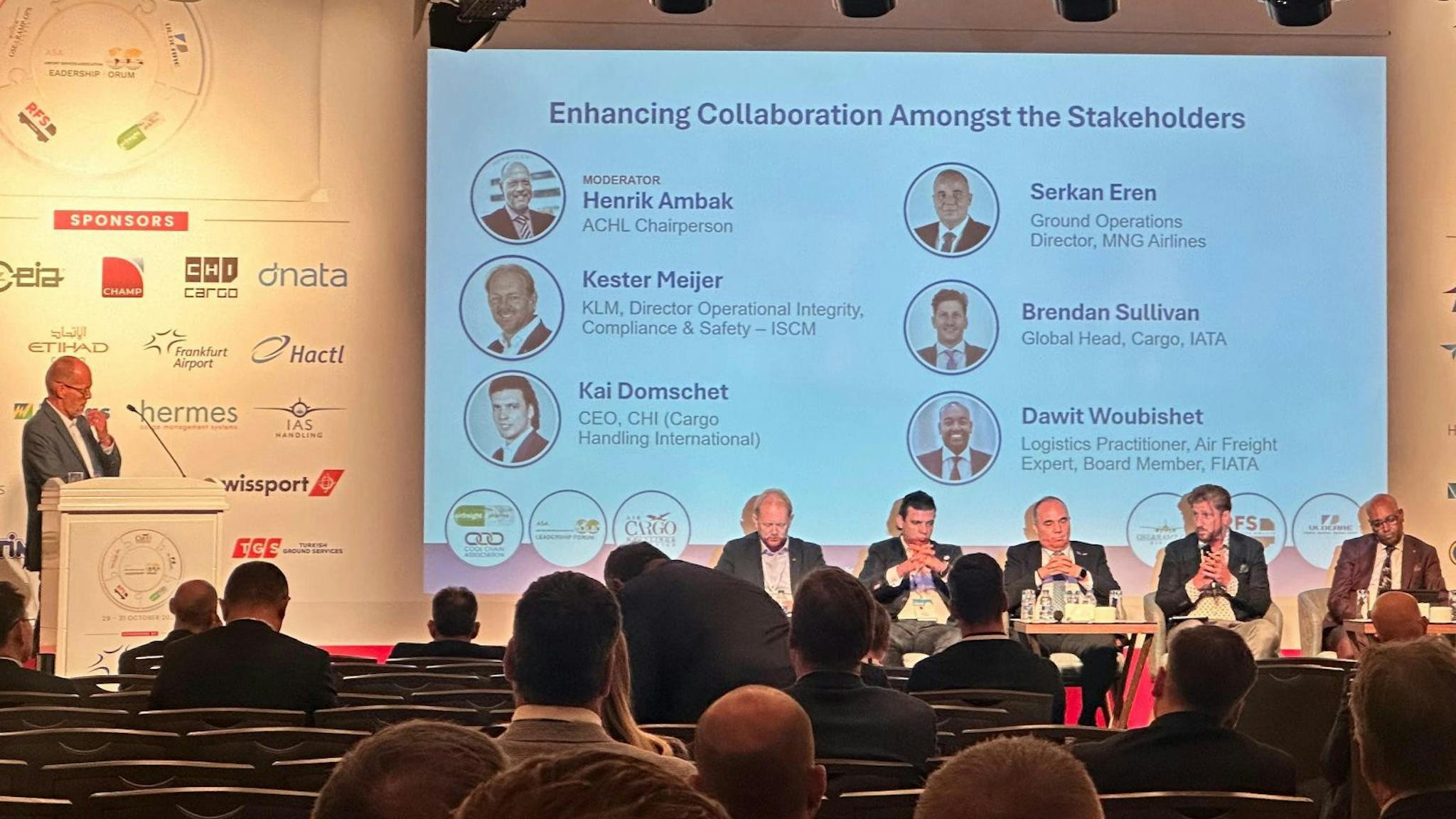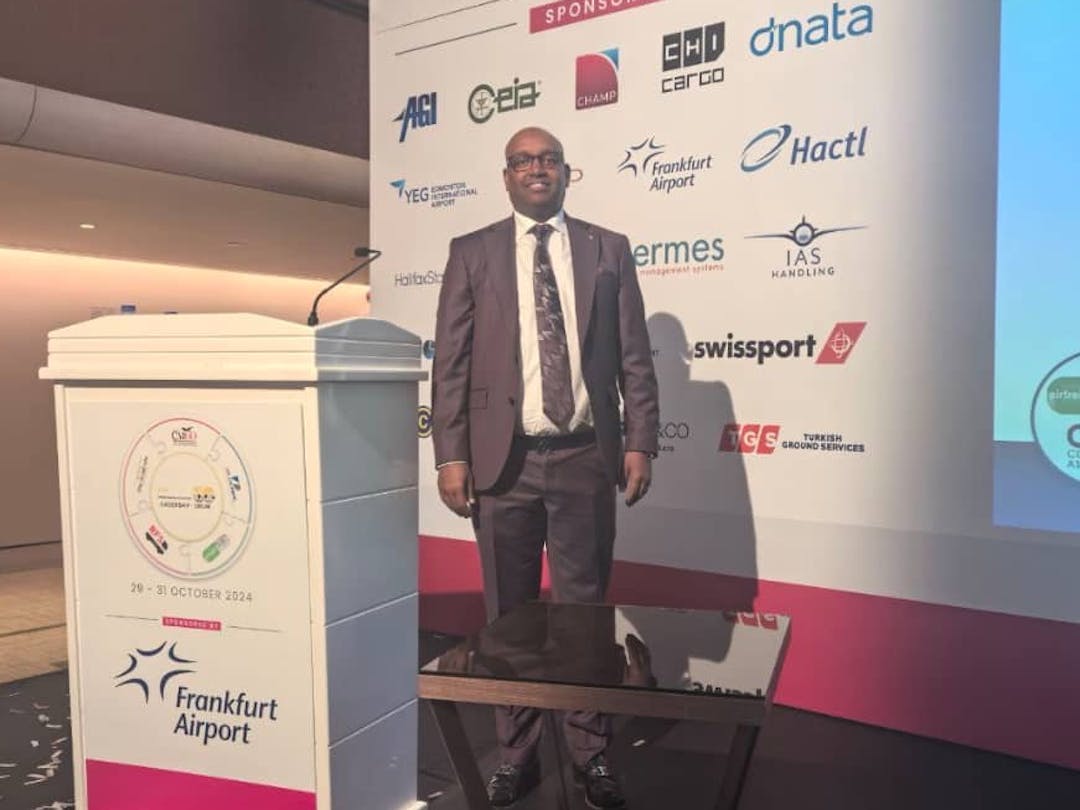2025 FIATA HQ Meeting Registration, Air Cargo Insights, and Global Logistics Initiatives

Register Now for the 2025 FIATA HQ Meeting, 17-20 March!
Mark your calendars! The FIATA Headquarters (HQ) Meeting will take place from 17-20 March 2025 in Geneva, Switzerland. This pivotal event, themed “Interconnecting Logistics”, will gather logistics and freight forwarding professionals from around the world to explore new pathways for collaboration, sustainability, and digital integration in the industry.
This year’s theme underscores the importance of working together across borders and sectors to address the evolving demands of global trade. With a focus on digital interconnectivity and sustainability, the HQ Meeting will provide attendees with valuable networking opportunities, insights from industry leaders, and a platform for meaningful discussions on shaping the future of logistics.
For more information about the 2025 FIATA HQ Meeting Programme, visit the dedicated event page.
The Latest IATA Report Shows Air Cargo Growth and Positive Demand in September 2024

The latest IATA report for September 2024 indicates a solid 9.4% year-over-year increase in global air cargo demand, continuing 14 consecutive months of growth. This steady rise was complemented by a 6.4% increase in capacity, primarily driven by a 10.3% expansion in international belly cargo space, a trend sustained by robust e-commerce activity in the US and Europe.
Regionally, Latin American airlines led with a 20.9% growth in demand, while Asia-Pacific and European carriers also saw strong growth at 11.7%. North American airlines reported more modest gains at 3.8%, and African carriers experienced a 1.7% increase, the slowest of all regions. Demand on international routes rose by 10.5%, reflecting resilient trade activity despite potential future uncertainties tied to US trade policies and broader global economic conditions.
Furthermore, air cargo yields have improved significantly, up 11.7% from 2023 and approximately 50% above pre-pandemic levels, suggesting sustained revenue strength as the year-end approaches. With inflation easing slightly in key markets and global industrial production rising by 1.6%, analysts are monitoring these economic indicators for clues on air cargo demand going into 2025.
This steady momentum raises key questions, e.g. How will ongoing global trade shifts, the outcome of the US election, and easing inflation impact demand into next year?
Read more about the report here.
Strengthening Partnerships for Resilient Air Cargo at ACHL 2024

From left to right: Henrik Ambak, Conference Chair; Kester Meijer, Director Operational Integrty, Compliance & Safety, KLM Cargo; Kai Domscheit, CEO, CHI Deutschland Cargo Handling; Serkan Eren, Ground Operations Director, MNG Airlines & delegate of the FIATA's Advisory Body on Safety and Security; Brendan Sullivan, Global Head of Cargo at International Air Transport Association (IATA); and FIATA Airfreight Institute (AFI) Chair, Dawit Woubishet, during the panel titled “Enhancing Collaboration Amongst the Stakeholders”.
At the Air Cargo Handling Logistics (ACHL) 2024 event in Istanbul, Türkiye, which took place during 29-31 October 2024, industry leaders gathered to advance collaboration in the air cargo supply chain. FIATA Airfreight Institute (AFI) Chair, Dawit Woubishet and Serkan Eren, Ground Operatoins Director, MNG Airlines and delegate of the FIATA's Advisory Body on Safety and Security shared insights during the panel titled “Enhancing Collaboration Amongst the Stakeholders,” moderated by Henrik Ambak, Conference Chair. The panel also featured key voices from Brendan Sullivan, Global Head of Cargo at International Air Transport Association (IATA), Kester Meijer Director Operational Integrity, Compliance & Safety, KLM Cargo, and Kai Domscheit, CEO, CHI Deutschland Cargo Handling. The discussion focused on building a stronger, more integrated air cargo network. Key topics included:
- Industry collaboration: The AFI Chair emphasised the need for real, actionable partnerships among stakeholders. This focus on practical collaboration will help address critical operational challenges and the advancement of the future Global Air Cargo Programme.
- Safety and Security practices: The panel explored current best practices and emerging needs in cargo safety, with special emphasis on secure handling and ground integration.
- Cargo Handling and ULD standards: Attendees discussed advancements in Unit Load Device (ULD) technology and the need for industry-wide standards, such as the revised ICHM (IATA Cargo Handling Manual).
- Joint initiatives: The joint initiatives on the PLACI, such as the EU ICS2 programme between industry organisations were mentioned. Serkan Eren raised concerns about delays in ICS2 implementation, emphasising the importance of global regulatory alignment.
This event underscored FIATA's role in driving forward-thinking logistics practices and its dedication to seamless, efficient, and secure air cargo operations globally.

FIATA Airfreight Institute (AFI) Chair, Dawit Woubishet.
FIATA Participates in 13th Session of the Canadian Air Cargo Programme Joint Council

FIATA took part in the 13th session of the Canadian Air Cargo Programme Joint Council (CACP-JC) (CACP-JC) held on 22 October. During that session, a number of key items were addressed including clarifications regarding the IATA (International Air Transport Association) Cargo Intermediary Agreement, Dangerous Goods Certificate requirements, and the new Local Consultative Councils established worldwide. Importantly, the group noted the revised liability limits under the Montreal Convention, which will take full effect as of 28 December 2024. Further information on this will be communicated in due course.
In addition, the recent Transport Canada emergency measures for airfreight were discussed, which had brought about confusion and cargo delays at its inception due to the lack of clarity and communication with relevant industry stakeholders. In respect of Transport Canada’s Pre-Loading Air Cargo Targeting (PACT) programme, it was noted by certain airlines present that they are working to ensure freight forwarders can self-file. FIATA reminded the CACP-JC participants of the FIATA Model Agreement for Bilateral Multiple Filing Arrangements which was developed as a result of consultations with relevant stakeholders and experts from the airline and freight forwarding industry (multinationals and SMEs) for the benefit of the industry in respect of pre-loading advance cargo information (PLACI) programmes.
FIATA continues to work to support its Members in all regions to ensure the voice of the freight forwarders is heard, defending and protecting industry interests under the current Cargo Agency Programme, and working to ensure a modernised and fit-for-purpose programme through its work towards a new Global Air Cargo Programme.
FIATA at the World Customs Organization’s 245th-246th Session of the Permanent Technical Committee

On 23-25 October, FIATA took part at the World Customs Organization's (WCO) 245th-246th Session of the Permanent Technical Committee (PTC) meeting through its longstanding WCO observer status. During the meeting, experiences were shared by stakeholders on the implementation of the WCO Framework of Standards on Cross-Border E-Commerce. It was noted that valuation remains a key issue. In terms of trends, re-commerce (reselling), reverse logistics, circular packaging, social commerce and gamification (buying on social media and getting discounts for playing games) are and will have a huge impact on customs. At the same time, it was noted that there have been certain trends observed by customs in addressing such issues, such as removal of de minimis to receive more revenue and discourage e-commerce, asking for more data, and requiring the customer to register with customs directly. However, removal of the de minimis will not address the issue of undervaluation. In addition, data quality and compliance will be key by all industry stakeholders. Ultimately, e-commerce is seen as an important enabler to economic wealth and it is crucial that this is fostered.
A presentation took place by the WCO regarding its study on a Globally Networked Customs (GNC). It was noted that data ownership, data protection and cybersecurity are key issues which are intended to be addressed in the upcoming GNC toolbox which was created by the WCO based on the input of member administrations. Several suggestions were made under the study on possible approaches towards the implementation of GNC by member states. FIATA underlined the importance of data ownership and data governance to facilitate the flow of information. FIATA emphasised the need for the solution to promote alignment and global harmonisation, as far as possible, avoiding fragmentation. In order to ensure the effectiveness of this initiative, FIATA informed customs administrations of FIATA’s work in collaboration with the Global Shippers Forum on a Data Governance Charter, and suggested that the ensuing solution give consideration to the promoting the same data governance principles amongst other stakeholders in the supply chain, including digital applications, platforms and supply chains stakeholders, which would eventually give such data to the relevant customs administration. This would be important to ensuring that such data governance principles be promulgated uniformly across the supply chain and facilitating trust and reliability in the data received.